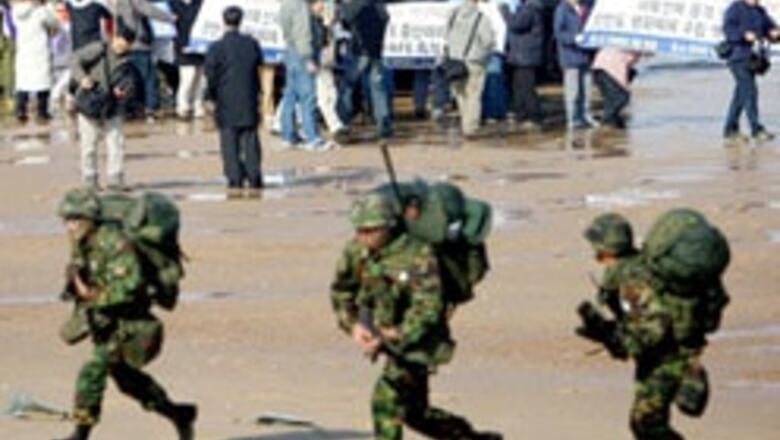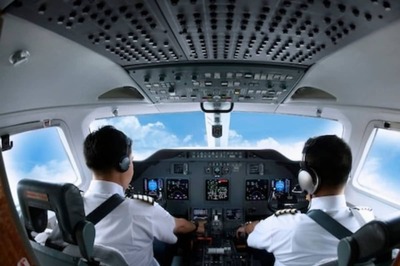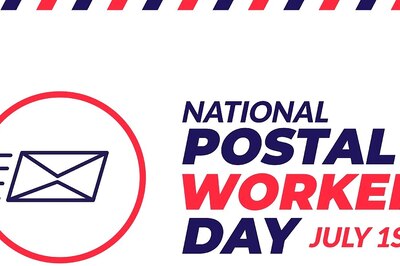
views
Washington: A top American admiral said on Monday he invited Chinese commanders to observe a US military exercise as part of efforts to build ties between the two forces, but said the process won't succeed without similar gestures by Beijing.
Adm. William Fallon, commander of US Pacific forces, said that during a weeklong visit he urged Chinese military leaders to help open direct communications and build confidence between the two militaries, which have only sporadic contacts.
Fallon said Chinese officials expressed interest in closer ties but didn't immediately respond to the invitation to attend the exercises next month in Guam. And he said they expressed dismay at a Pentagon report that called Beijing a potential threat.
''We are moving forward. It is obvious we have the consensus and endorsement of senior leadership on both sides,'' Fallon said at the end of a four-day tour that included meetings with China's defense and foreign ministers and visits to several military bases.
The Chinese reception for Fallon and his invitation were unusual bright spots in military ties that have never been close and were broken off following the 2001 collision of a US Navy plane and a Chinese fighter jet off China's southern coast.
US President George W Bush's administration has called for closer military ties. But American officials including Secretary of Defense Donald H Rumsfeld have expressed unease about Beijing's intentions.
They complain that China's military is too secretive, reluctant to reciprocate tours of sensitive US facilities with equal access to Chinese command center.
Despite public expressions of suspicion and different political systems, the two sides appear to be ready for more regular interaction, said Reimund Seidelmann, a specialist on the Chinese military at Germany's Giessen University.
''There is at least a window of opportunity. It would be stupid not to use this,'' Seidelmann said. Among his recommendations to improve ties were an exchange of observer missions or letting Chinese officers attend Western military colleges.
''This is, on the military level, a perfect way to reduce tensions, to reduce misperceptions, which is always a major problem,'' he said.
Chinese officers, he said, ''have not enough information about the real US military and foreign policy, because most of them have never been to the US.''
PAGE_BREAK
Fallon said he pointed out to Chinese officials that US law limits cooperation with the People's Liberation Army, and he appealed to China for gestures that would support his lobbying Congress to ease such restrictions.
A 2000 law limits interaction to humanitarian and what the Pentagon calls ''other non-warfighting'' activities.
The admiral said he called on Chinese officials to show that ''we are going to have a full and open, reciprocal exchange.''
Fallon said he urged them to accept invitations to mix with US and other militaries in the region including sending a general to an annual Asian defense meeting, held this year in Malaysia and to hold regular exchanges of lower-level officers.
Fallon said he invited Chinese officers to watch the Guam exercises from aboard a US warship on June 17-19 and told his hosts that American officials would like to receive similar invitations.
The 2.3 million-member PLA is the world's largest fighting force, and Beijing has alarmed its neighbors with double-digit spending increases nearly every year for a decade.
Beijing has tried to allay such fears by saying much of its spending is defensive. But the PLA also has spent billions of dollars on Russian submarines, fighter jets and other high-tech weaponry and has hundreds of missiles aimed at Taiwan, the self-ruled island that Beijing claims as its own territory.




















Comments
0 comment